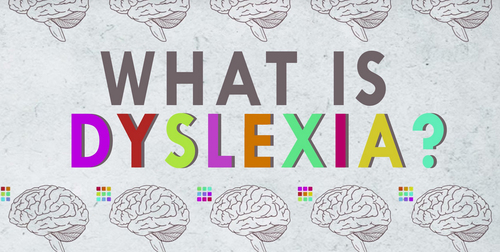Dyslexia - What is it?
This summer I am taking a dyslexia class on line as part of my reading endorsement. I hope to be able to learn about dyslexia, find ways to meet the needs of those who are challenged by it and share my learning with others.

Tunmer and Greaney further define dyslexia as "persistent literacy learning difficulties, especially difficulties in word recognition, spelling, and phonological recoding, where phonological recoding is the ability to translate letters and letter patterns into phonological forms" (p. 231) better known as words.
When we learn to read we begin to associate sounds with letter combinations we see. This process involves not only our vision and hearing but brain processes that occur in three separate parts of the brain. The data is then combined in a third part, stored in short term memory and then eventually in long term memory. For approximately 1 in 5 people this process does not occur in as fluid a manner. As reading is a complex process that involves at least five parts of the brain and the synapses and neurons in between, you can begin to understand how many variations there are in those who struggle with learning to read. There is no cure for dyslexia and individuals with this condition must learn coping strategies. Research indicates that dyslexia has no relationship to intelligence. Individuals with dyslexia are neither more nor less intelligent than the general population. But some say the way individuals with dyslexia think can actually be an asset in achieving success. My goal is to begin to explore the literature and research about this topic to better meet the needs of students and share that information with others.
Watch Dr. Varia's presentation:
Works Cited:
Tunmer, W., & Greaney, K. (2010). Defining dyslexia. Journal of Learning Disabilities, 43(3), 229-243.
Varia, Rachna, PhD. "Understanding Dyslexia - YouTube." 22 Jun. 2015, https://www.youtube.com/watch?v=IMKeefkPxxI. Accessed 3 July. 2018.
Williams, J. A., & Lynch, S. A. (2010). Dyslexia: What teachers need to know. Kappa Delta Pi Record, 46(2), 66-70.
Comments
Post a Comment